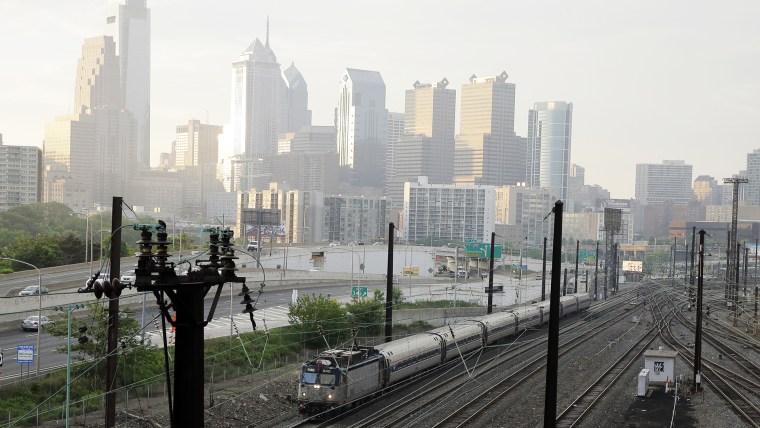Voters will go to the polls today in five states -- Connecticut, Delaware, Maryland, Pennsylvania, and Rhode Island -- making it the biggest day for presidential primaries since mid-March. And while every contest matters, there's little doubt that Pennsylvania is of particular significance today.
Indeed, especially when it comes to the Republican race, the Keystone State may very well decide who wins the nomination.
At first blush, the way in which Pennsylvania allocates delegates may seem confusing. On the one hand, 2016 calendars show the state offering up 71 Republican delegates. On the other hand, we also know only 17 bound Republican delegates are on the line today.
So, what's this all about? The Washington Post explained last week:
While most states award convention delegates on a winner-take-all or proportional basis, 54 of Pennsylvania's 71 delegates -- three for each of 18 congressional districts -- are officially unbound to a candidate and do not have to announce their intentions before Tuesday's vote. The winners can vote for whomever they want at the convention. "I picked a very interesting year to run," said Larry Stohler, 71, a former Lebanon County commissioner who says he would vote at the convention for whichever candidate wins here in the 6th Congressional District -- at least on the first ballot.
As you're watching MSNBC's live coverage tonight, keep in mind that one GOP candidate, probably Donald Trump, will win the most votes in Pennsylvania, which will give him an additional 17 delegates. That's good for him, but it's not a particularly large number. At the same time, the state's voters will also elect 54 unbound delegates, and no one really knows what they'd do at the convention.
And that's where the story starts to get more interesting.
When fiddling with the numbers on delegate calculators, it's easy to assign 17 delegates to Trump for Pennsylvania. The trick is what to do with the other 54, but we're not completely flying blind.
As Steve Kornacki recently explained while guest hosting The Rachel Maddow Show, most of the Republicans running to become unbound convention delegates have said they'll honor the will of local voters: if the folks in their congressional district back Trump, then the delegates will back Trump, too. If votes back Ted Cruz, they'll support Cruz. And so on.
Why is this so important? Because if Trump dominates in Pennsylvania, which seems likely, he'll not only win the overall statewide tally, he'll also probably win in nearly all, if not literally all, of the state's districts. In other words, if the delegate candidates follow the will of the voters, Trump won't just earn 17 delegates out of Pennsylvania, in practical terms, he'll probably end up in the end with 62 to 71 Pennsylvania delegates.
And with that kind of haul, the overall math starts to look even friendlier to Trump, boosting his odds considerably of reaching the 1,237 threshold before the festivities begin in Cleveland.
Watch this space.
